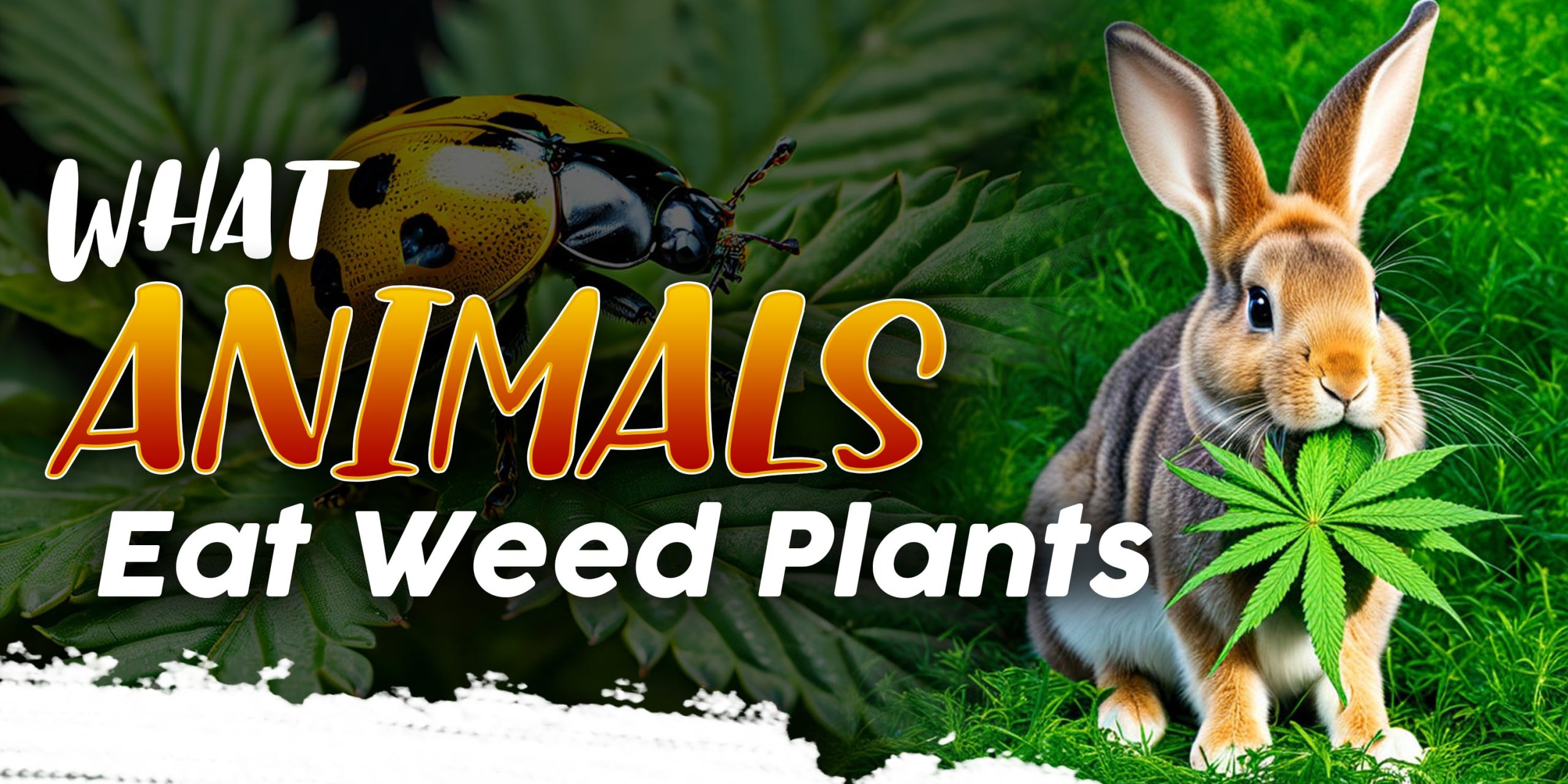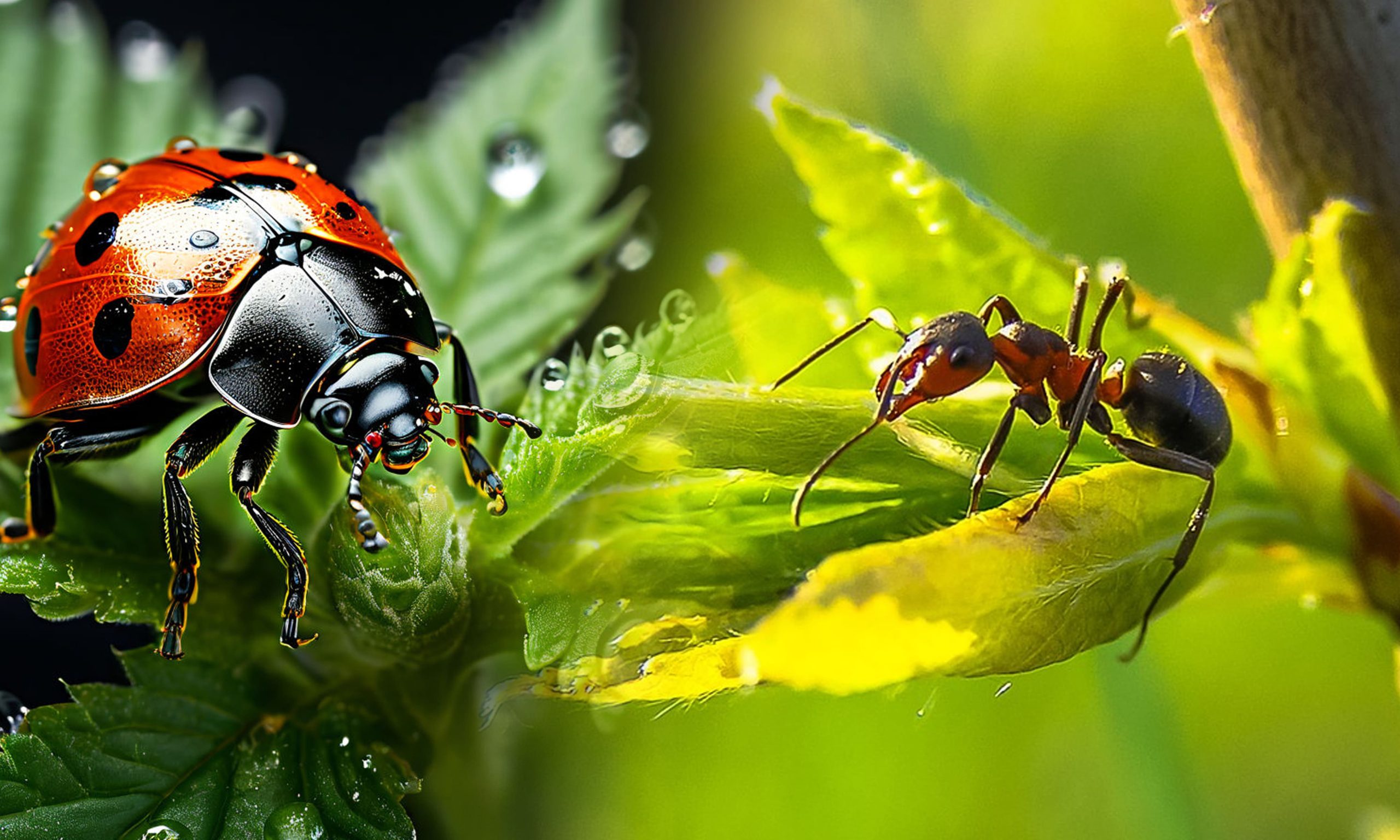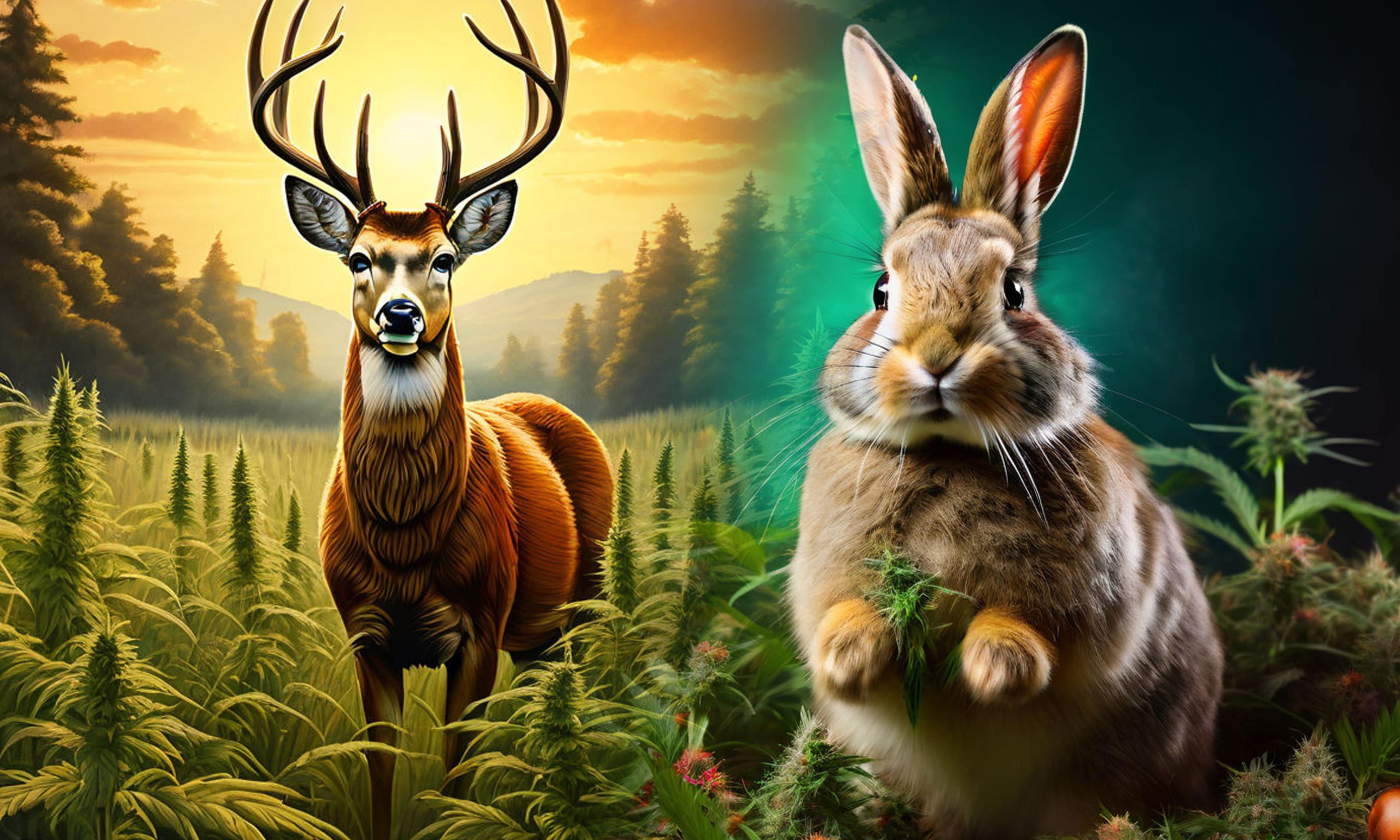Animals are really important for keeping nature in balance. They eat different plants, even weeds. This is super important for people who garden, people who want to protect nature, and scientists who study ecosystems. This guide is here to help everyone understand how animals and weeds are connected and what animals eat weed plants. It will explain why this connection is so important and what it means for gardens and nature.
What Animals Eat Marijuana Plants?
Weed plants are like a buffet for many animals in different places. Insects, from tiny beetles to caterpillars, love munching on their soft leaves and stems. These insects help control pests naturally, which means they keep weed numbers in check while also feeding themselves and other creatures higher up the food chain. To answer the question of do mice eat weed plants, small rodents like mice and voles enjoy snacking on weed seeds. They accidentally help spread these seeds around, making weed populations stronger.
Bigger Herbivores: Do Deer Eat Marijuana Plants
Big plant-eating animals like deer, rabbits, and cattle have a big impact on weeds by eating them. When they eat weeds, it affects how the plants grow and where they spread. These animals can choose which weeds to eat and change how the land looks by eating certain plants more than others. This can have a big effect on the variety of plants and how the whole ecosystem works.
Carnivores and Weed
Even though meat-eating animals don’t eat weeds themselves, they still affect weed numbers indirectly. They do this by hunting animals that eat weeds. Predators like birds of prey, snakes, and mammals help keep the numbers of plant-eating animals in check. This indirectly affects how many weeds there are. By making sure there’s a balance between the animals they eat and the ones they don’t, carnivores help keep ecosystems healthy, including managing weed growth.
Human Intervention and Weed Management
Even though animals help control weeds in nature, humans often need to step in to keep weed numbers down, especially on farms. We use different tools and methods to get rid of weeds physically. This includes things like cutting them down, digging them up, or pulling them out by hand. We also use chemicals called herbicides to kill weeds without hurting the plants we want to keep or other animals. Sometimes, we introduce bugs or germs that attack weeds in a specific and safe way. This helps us use fewer chemicals and keep the environment balanced.
Conclusion
The connection between animals and weeds is intricate and has big effects on how ecosystems work and how people live. When we know what animals like to eat and how they fit into the environment, we can find better ways to deal with weeds. This means using both natural methods and human help to manage them. By working together and using methods that don’t harm the environment, we can keep ecosystems healthy. This helps keep weed numbers down and makes our planet more diverse and balanced.
FAQs
Q: How do animals identify weed plants?
A: Animals rely on a combination of visual, olfactory, and gustatory cues to identify suitable food sources. Certain weed species may emit distinct odors or possess unique physical characteristics that attract herbivores.
Q: Are there any animals that exclusively feed on weed plants?
A: While some animals may preferentially consume certain weed species, few rely exclusively on weed plants for sustenance. Most herbivores exhibit dietary flexibility, consuming a variety of vegetation depending on availability and nutritional needs.
Q: Can animals inadvertently spread weed seeds?
A: Yes, animals can inadvertently spread weed seeds through their feces or by carrying seeds on their fur or feathers. This seed dispersal mechanism contributes to the spread of weeds in natural environments, facilitating their colonization of new areas.
Q: How can gardeners deter animals from eating weed plants?
A: Gardeners can employ various deterrents such as fencing, repellents, and companion planting to discourage animals from feeding on weed plants. Additionally, creating habitat corridors for natural predators can help regulate herbivore populations and minimize damage to cultivated crops.
Q: Are there any benefits to allowing animals to consume weed plants?
A: In certain cases, allowing animals to consume weed plants can provide ecological benefits. Grazing by herbivores can help maintain open landscapes, prevent the dominance of invasive species, and promote plant diversity in grassland and savanna ecosystems.
Q: What role do insects play in weed control?
A: Insects play a multifaceted role in weed control, with certain species acting as natural enemies of weeds. In addition to consuming weed plants directly, insects may also contribute to weed suppression through herbivory, parasitism, and competition for resources.




















